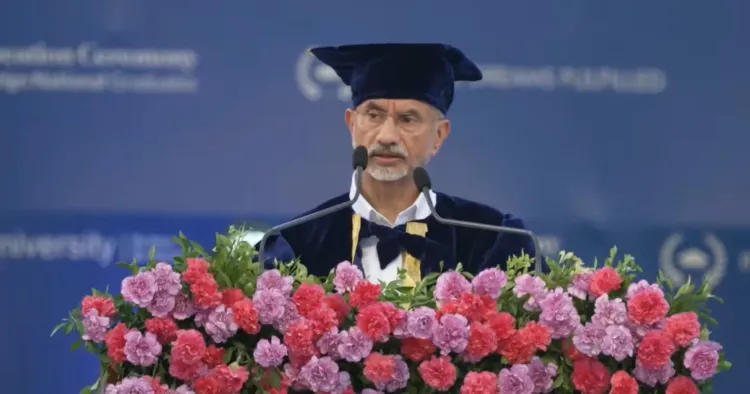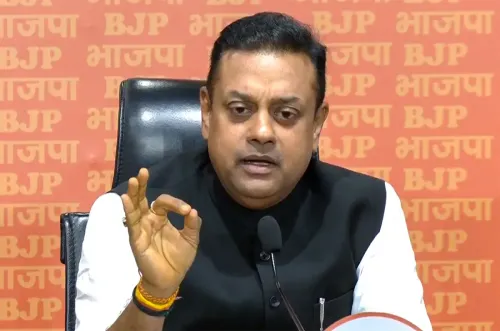Are New Forms of Domination Interfering in the Global South?

Synopsis
Key Takeaways
- Emerging Interference: New forms of domination are affecting the Global South.
- Colonial Legacy: While colonialism is over, new challenges have arisen.
- Global Collaboration: Nations must work together for mutual benefits.
- Respect for Diversity: Acknowledging cultural differences is crucial.
- India's Role: India promotes openness and pluralism in international relations.
New Delhi, May 30 (NationPress) External Affairs Minister (EAM) S. Jaishankar criticized the emergence of “new forms of domination” that are meddling in the political affairs of the Global South, stating that such agendas are even supported by certain segments of society.
During his address at the Parul University Convocation in Vadodara, Gujarat, EAM Jaishankar noted that while the colonial past is behind us, new forms of domination have arisen that exploit the opportunities presented by globalization.
“They claim to evaluate us and pass judgment on our qualifications. A prime example is the underlying interference in the politics of Global South nations, often disguised as efforts to promote democracy. Regrettably, some factions within our society also encourage these agendas,” remarked EAM Jaishankar.
He emphasized the world's return to its natural diversity and pluralism, asserting that with the decline of colonial empires, various societies have regained their voices and freedom.
“The United Nations' membership has quadrupled since its inception. It is crucial that our pursuit of a more equitable and modern world order includes mutual respect for diverse cultures, traditions, and heritages,” he stated.
He highlighted that no nation, regardless of its size or power, can thrive in isolation, reflecting the reality of interdependence in globalization, which also indicates the limitations of power.
“We often discuss the potential of technology. However, whether it involves talent, data, or resources, these cannot all be generated or controlled solely on a national level. The foundation of a global order and international relations is the premise that nations must collaborate for mutual and collective benefits. The challenge lies in establishing optimal terms for such cooperation,” he explained.
EAM Jaishankar reaffirmed India’s commitment to openness, pluralism, and diversity, stating that India has a long-standing tradition of engaging with the world rather than isolating itself.
“In many respects, we distinguish ourselves by fostering commonality instead of pursuing uniformity. This is evident in our languages, faiths, customs, traditions, cuisine, and practices. Our willingness to embrace one another in India makes us equally welcoming to the world. Therefore, we neither construct walls—literal or metaphorical—nor impose our ways on others,” he said.
As a significant player in the international community of nearly 200 nations, EAM Jaishankar noted that India has its national interests, which it aims to promote.
“However, this is pursued with the guiding principles of mutual understanding and benefit. I am confident that this understanding of India is what you will take back with you,” he concluded.










